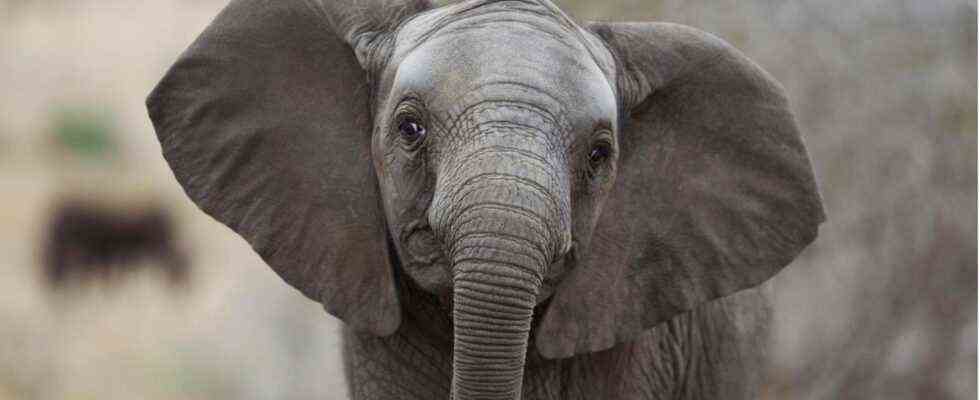study
Elephants are born without tusks – poachers are to blame
Toothless is safer – after all, elephants without tusks are of no interest to poachers
© Thomas Dressler / Picture Alliance
Nature adapts to human greed, at least that’s what a new study suggests. According to this, more elephants without tusks were born in a national park in Mozambique – to protect against ivory hunters.
The decades-long hunt for African elephants has meant that more and more pachyderms are born without tusks. This is the conclusion reached by the authors of a study recently published in the US journal “Science”. The findings proved “that humans literally change the anatomy of wildlife,” said Robert Pringle of Princeton University’s Department of Ecology and Evolutionary Biology, who led the study.
Ivory hunt to fill the war chest
The researchers investigated the question of why cows elephants in the Gorongosa National Park in Mozambique were often born without tusks. The result: mass poaching due to ivory triggered a genetic mutation in the animals. The Mozambique civil war from 1977 to 1992 decimated the elephant population here by 90 percent. Armed forces of both parties to the conflict hunted the animals because of the ivory that was needed to finance the fighting, according to the British “Guardian”. According to the science journal “Nature”, the population shrank from 2500 animals to just 200 in the early 2000s.
As the populations gradually recovered after the end of the war, researchers found that female elephants were increasingly born without tusks. Before the war, the proportion of tuskless elephant cows was around 18.5 percent. According to the study authors, this proportion rose to more than half of the 91 animals born since then. The reason is a genetic change, in other words: evolution.
By steamboat, carriage and elephant – when traveling was still an adventure
12 images
Masculinity as a genetic disadvantage
Elephants without tusks were simply of no interest to the poachers and were therefore mostly spared. This in turn increased the likelihood that precisely these animals will reproduce. They finally passed the “feature: no tusks” on to the offspring. The fact that bulls were only rarely born with this “innate protection” from poachers is also due to a genetic difference, according to the study.
The mutation that is responsible for tusklessness is usually fatal for males in the womb. For this reason, herds suffering from intensive hunting are at risk of a shortage of male offspring. However, this problem is reversible over time, said Pringle, according to the Guardian. After all, the stock has tripled since the 1990s. Accordingly, pachyderms with their distinctive tusks could be admired more frequently in the future – “provided that the population development remains as positive as it has been recently,” says Pringle.
Incidentally, this is not the first time that nature has responded to human greed. According to “Nature” in Alberta, Canada, the horns of bighorn sheep have shrunk by 20 percent in 20 years of intensive trophy hunting. Fishing also triggered a “rapid evolution” in some species.
For scientists, however, it is fundamentally difficult to link the evolution of species with human influence. Other environmental factors, above all climate change, could cause mutations.
sources: Study in “Science-Magazin”; “The Guardian”; “Nature”

